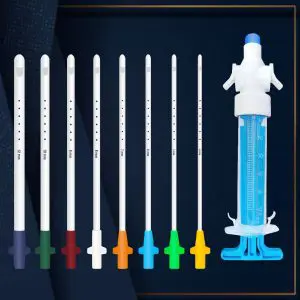Sildenafil, commonly known by the brand name Viagra, is a medication used to treat erectile dysfunction (ED) in men. It works by enhancing blood flow to the penis, allowing for a firmer erection during sexual stimulation. While effective for many, understanding how long it takes for sildenafil to kick in can be crucial for planning and maximizing its benefits. If you are looking for best ED cure then must try sildenafil superactive
Factors Affecting Sildenafil’s Onset:
The time it takes for sildenafil to work can vary depending on several factors:
- Dosage: Sildenafil comes in different strengths, typically ranging from 25mg to 100mg. Higher doses generally take effect faster than lower doses. you can also try filagra gel shots
- Food Intake: Taking sildenafil on an empty stomach allows for faster absorption into the bloodstream, leading to quicker results. Conversely, a heavy meal can significantly delay its onset.
- Individual Metabolism: Each person metabolizes medication differently. Some may experience the effects within 30 minutes, while others may take closer to an hour.
A Look at the Timeline:
Here’s a breakdown of the typical timeframe for sildenafil’s action:
Within 30 minutes: This is the ideal scenario, especially for those who prefer spontaneity. However, it’s not guaranteed for everyone. 45 minutes to 1 hour: This is a more realistic timeframe for most individuals, especially when taken on an empty stomach. Up to 2 hours: In some cases, particularly with a full meal or a higher dosage, it might take up to 2 hours for the full effect.
Maintaining Effectiveness:
The window of sildenafil’s effectiveness is also a crucial consideration:
- 2 to 4 hours: This is the general timeframe during which sildenafil is most effective in facilitating an erection.
- Beyond 4 hours: The effects gradually diminish after 4 hours, and achieving or sustaining an erection might become progressively harder.
Maximizing Sildenafil’s Efficacy:
Here are some tips to optimize sildenafil’s effectiveness:
- Take it on an empty stomach: Avoid greasy or heavy meals for at least 2-3 hours before taking sildenafil.
- Plan accordingly: Consider the time it takes for the medication to work when planning sexual activity.
- Maintain sexual stimulation: Sildenafil doesn’t directly cause an erection. Sexual arousal is still necessary for it to work.
- Consult your doctor: Discuss any concerns or questions you have regarding sildenafil with your doctor. They can adjust the dosage or recommend alternative treatment options if needed.
Important Considerations:
- Not a Cure: Sildenafil treats ED symptoms but doesn’t cure the underlying cause.
- Not an Aphrodisiac: It doesn’t increase sexual desire, only the ability to achieve an erection.
- Potential Side Effects: Headaches, flushing, and indigestion are common side effects. Discuss any concerns with your doctor.
- Prescription Required: Sildenafil is a prescription medication. Never take it without consulting a doctor.
Individual Variability:
- Age: Older men may experience a slightly slower onset of action compared to younger men due to age-related changes in metabolism.
- Underlying Medical Conditions: Certain medical conditions like diabetes, heart disease, and neurological disorders can affect blood flow and potentially impact sildenafil’s effectiveness.
Alternatives to Consider (consult a doctor):
- Other ED Medications: There are other medications available for ED, such as tadalafil (Cialis) and vardenafil (Levitra). Each has a slightly different onset and duration of action. Your doctor can help you choose the most suitable option based on your needs.
- Non-medicinal Treatments: Lifestyle modifications like quitting smoking, regular exercise, and managing stress can improve overall vascular health and potentially benefit ED.
Safety and Precautions:
- Drug Interactions: Sildenafil can interact with certain medications, including nitrates (used for heart conditions) and some blood thinners. It’s crucial to inform your doctor about all medications you take before starting sildenafil.
- Pre-existing Health Conditions: If you have certain pre-existing health conditions like heart disease, uncontrolled high blood pressure, or severe liver/kidney problems, sildenafil might not be suitable. Discuss your medical history with your doctor to determine if it’s safe for you.
Psychological Factors:
- Performance Anxiety: Anxiety about sexual performance can sometimes hinder the effectiveness of ED medications. Techniques like relaxation exercises or couples therapy can be helpful in managing anxiety and enhancing sexual satisfaction.
- Communication with Partner: Open communication with your partner about expectations and concerns can improve the overall experience.
Long-Term Management:
- Regular Consultations: Maintain regular consultations with your doctor to monitor your ED and adjust the treatment plan as needed.
- Addressing Underlying Causes: If possible, addressing the underlying cause of ED, such as hormonal imbalances or vascular issues, can lead to better long-term management.
Prescription Medications:
- Tadalafil (Cialis): This medication boasts a longer duration of action compared to sildenafil, lasting up to 36 hours in some cases.
- Vardenafil (Levitra): Similar to sildenafil, vardenafil works for several hours but may have a slightly faster onset time for some individuals.
Non-prescription and Natural Approaches (consult a doctor before trying):
- Herbal Supplements: Some herbal remedies like ginseng and L-arginine are marketed for ED, but research on their effectiveness is inconclusive. Consult your doctor before trying any supplements as they can interact with medications.
- Vacuum Erection Devices (VEDs): These devices use a vacuum to create and maintain an erection. While effective, they may require practice and can be uncomfortable for some users.
Lifestyle Modifications:
- Weight Management: Maintaining a healthy weight can improve blood flow and potentially benefit erectile function.
- Exercise: Regular physical activity can enhance overall vascular health and improve ED symptoms.
- Smoking Cessation: Smoking significantly restricts blood flow, negatively impacting erections. Quitting smoking can be a significant step towards managing ED.
Remember: Sildenafil is a powerful tool, but it’s not a one-size-fits-all solution. By understanding its action, potential variations, and safety considerations, you can have an informed discussion with your doctor and make the best choices for managing your ED and achieving a satisfying sexual life.
Psychological Support:
- Therapy: Performance anxiety or emotional issues can contribute to ED. Therapy can address these factors and improve sexual satisfaction.
Addressing Underlying Medical Conditions:
- Diabetes: Managing diabetes with proper diet, medication, and blood sugar control can improve blood flow and potentially benefit ED.
- Hormonal Imbalances: Low testosterone levels can contribute to ED. Testosterone replacement therapy might be an option in some cases, but it’s crucial to discuss the risks and benefits with your doctor.
- Vascular Issues: Underlying vascular problems like atherosclerosis can restrict blood flow to the penis. Addressing these issues with your doctor can improve ED and overall cardiovascular health.
Combination Therapy:
In some cases, a combination of approaches might be the most effective strategy. Your doctor can help you develop a personalized treatment plan that considers your specific needs and preferences.
Conclusion:
Sildenafil can be a valuable tool in managing ED. Understanding the factors affecting its onset and duration can help you plan for optimal results and a more fulfilling sexual experience. Remember, open communication with your doctor is key to ensure safe and effective use of sildenafil for your specific needs.



